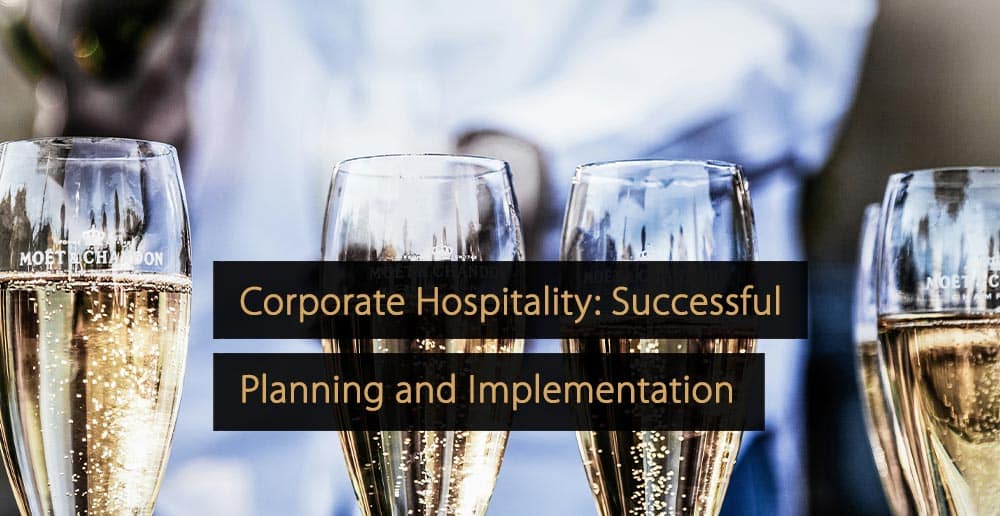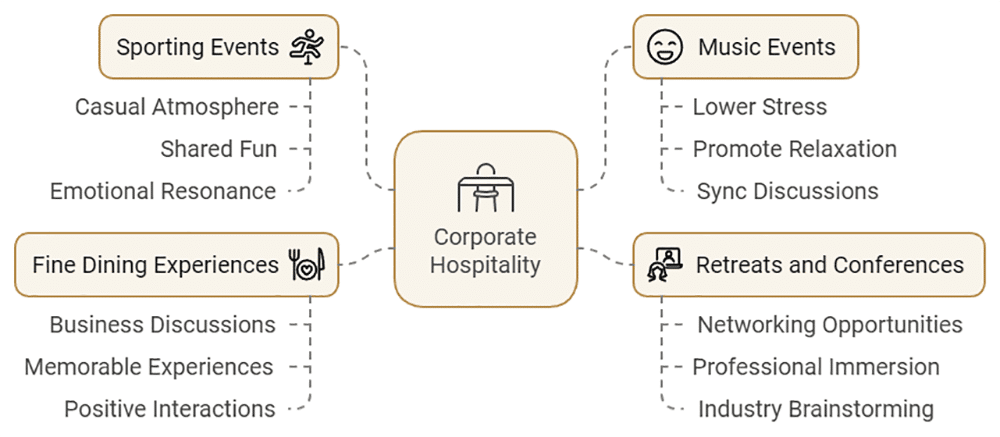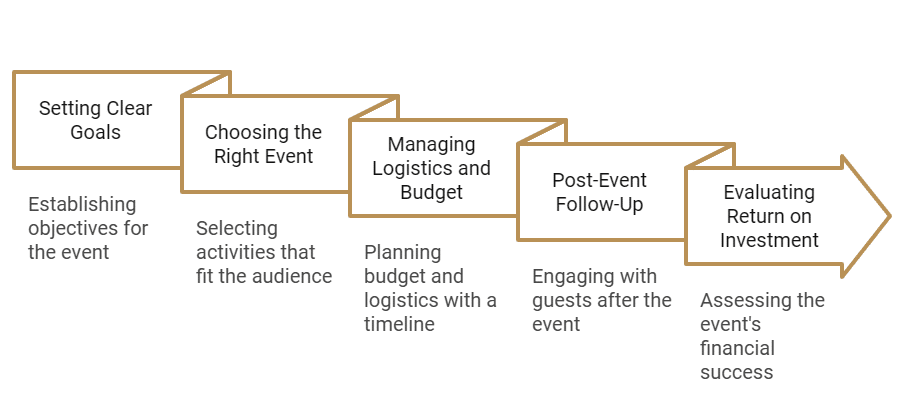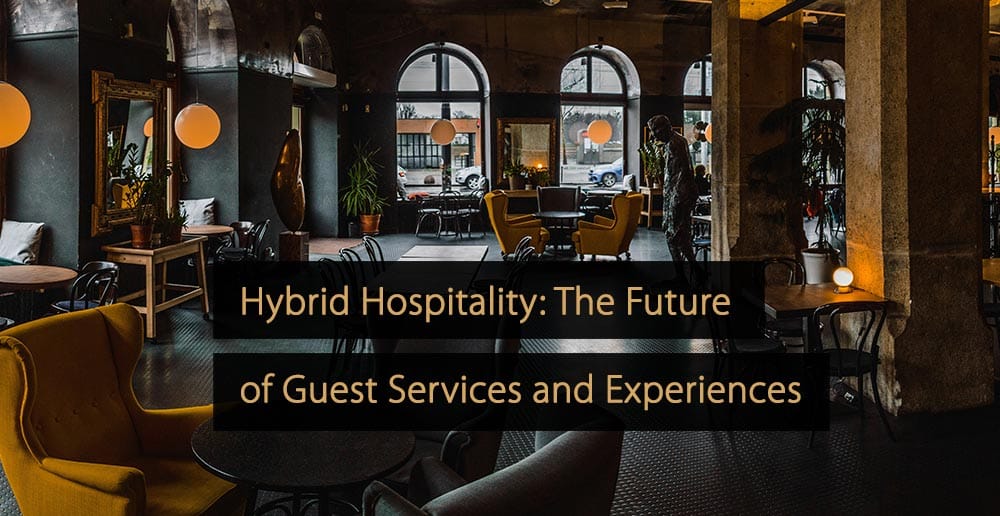Corporate hospitality is sometimes described as rolling out the red carpet for guests or providing entertainment. This is part of hospitality, but it’s better to think of it as showing everything defining your individual brand. One of the reasons hospitality is important comes down to the basic need to ensure corporate customers feel valued. However, there’s also the important element of ensuring they understand all of the available services there. In this article, you’ll learn exactly what the subject entails and how you can get the most out of it.
Table of Contents:
- What Is Corporate Hospitality?
- What Are the Benefits of Corporate Hospitality?
- 4 Types of Corporate Hospitality
- Planning a Successful Corporate Hospitality Event
- Pros and Cons of Corporate Hospitality
- Managing the Larger Scope of Hospitality
- Hospitality Services and Corporate Applications
What Is Corporate Hospitality?
Corporate hospitality can be seen as entertainment and a commitment to guests’ interests. However, at the heart of the matter, it’s best seen as the totality of what you seek to define your brand by. In other words, it’s as much about creating a business relationship between hotel management and the corporate entity. It highlights a hotel’s ability to not just host a guest but also act as a host for business meetings and similar events.
Companies need locations where they can impress clients and leverage business and entertainment in a balanced and flexible way. It’s a carefully organized process by which a hotel can let companies understand the full capabilities of the brand. This goes beyond showing what’s there at the moment and also encompasses what’s coming in the future and how the hotel can work to customize the property’s existing resources for success.
Video: What is Corporate Hospitality and How To Develop Relationship With Your Sponsors?
What Are the Benefits of Corporate Hospitality?
Corporate hospitality brings a wide range of benefits to every involved party. These typically focus on the simple fact that the hospitality sector is ideally placed to help create, strengthen, and maintain important social elements. These social elements are often the foundation of modern business. It facilitates the connections between companies and clients, which fosters success.
By facilitating success for the corporate interest you also help to build up the strength of your own brand. The company will help to grow its reputation through word of mouth, as will the other parties involved with the company’s event. Finally, any corporate event will, by its nature, have people in a position to further business-related interests. This is primarily for the party organizing an event. However, the hotel is also involved in the business deal simply by acting as a host and often benefits.
4 Types of Corporate Hospitality
While there are many forms of corporate hospitality, they can be generally categorized into a few different types. The following are the most significant forms that you’ll encounter.
1. Sporting Events Create a Casual Atmosphere
Sports describe everything from golf to football and likewise playing to watching them. Corporate hospitality can leverage sporting events to help cultivate specific emotional resonances. The hospitality industry excels in setting the overall feeling for an event. Sports are an important way of creating a casual feeling of shared fun. They can be a great way of encouraging everyone to let their guard down and be a little more authentic with each other. For example, people who come together to cheer on their favorite team often form connections beyond the sport.
2. Music Events Build Excitement
Hospitality and music go hand in hand, so it’s a little surprising that corporate hospitality is a factor as well. This can include live shows and more. Music is among the more popular hospitality trends given how it brings people together. In the context of business, it lowers stress and promotes relaxation. Music can quite literally help people get on the same wavelength during their discussions. People relax, start to move and think with the music, and generally have a good time even within the context of business. This helps both hotel and business interests.
3. Retreats and Conferences are Educational
Conferences are where people in an industry go to talk shop, brainstorm, and plan. This is a perfect fit for corporate hospitality opportunities. Hospitality management should view it as especially important as it offers networking opportunities for everyone. Likewise, it opens up the need for larger corporate parties. Conferences can be seen as a chance for greater professional immersion where people can learn, network, and grow. The desire for more beautiful or busy settings means that it’s also an especially good match for elements related to general hospitality and more.
4. Fine Dining Experiences Build Relationships
Fine dining, in terms of corporate hospitality, refers to meals shared with people discussing business. This typically involves building business relationships and similar important discussions. The restaurant management side of the hospitality industry stands to benefit the most from fine dining. However, the industry as a whole does as well. The hotel, restaurant, and business side of the industry all tend to converge to create memorable experiences for guests. This synthesis of functionality ensures that guests have a positive and long-lasting experience. This can also be integrated through functions like room service.
Planning a Successful Corporate Hospitality Event
Now that you’ve seen the types of Corporate hospitality, it’s time to delve deeper. The following tips will help you properly leverage those ideas into successful events.
1. Setting Clear Goals for Specific Results
Your goals are what you hope to gain from the event. It’s important to clearly set the corporate hospitality goals, so you’re always properly focused. This is an especially important concern because it’s quite easy to lose sight of your end goal. You can easily wind up focused on processes. However, the hotel industry as a whole is always trying to ensure guest satisfaction, which also carries to corporate events. Consider the outcome and what the events aim for and then consider how to achieve them and measure results.
2. Choose the Right Event to Fit the Audience
In the context of corporate hospitality, this step encompasses decisions about specific activities. This is where it’ll be held, along with the smaller internal iterations. This is especially important as the events need to fit both the larger context and individual interests. You also need to align brands and events. Consider a company focussed on hiking equipment. An outdoor event would be the perfect venue. While a business focused on fine dining would be a better fit for the restaurant industry, cuisine, or even a wine-tasting experience for guests.
3. Managing Logistics and Budget with a Timeline
Budgets and marketing logistics are, in large part, what is and isn’t economically feasible for the event. It’s generally best to create a solid budget. With a timeline and budget you know in advance how you’ll meet the various needs for the event. This includes both economic and temporal constraints. For example, this element encompasses choices for entertainment, catering, and other expenses related to the venue itself. You won’t have to worry about how well things will fit into your limitations as you’ll already know what is and isn’t feasible.
Video: Hospitality , Corporate Hospitality and Corporate offices
4. Post-Event Follow-Up to Maintain Relationships
The end of the corporate hospitality event isn’t really the end of the job. Following up with guests is just as important as the event. When you talk to people involved in the event you have a chance to learn what they thought. Additionally, you solidify their overall positive impressions. This step helps to enhance the experience for all parties. The hotel is able to network and ensure that there will be return business. The guests, in turn, are able to discuss their experiences and make suggestions for possible plans for later.
5. Evaluating Return on Investment to Judge Performance
The return on investment (ROI) describes the total benefit gained from an event. It’s typically derived from subtracting the cost from the amount of profit. ROI is important because it is an objective metric. One of these is to tell you if corporate hospitality needs further efficiency improvements. This isn’t just a metric for one element within the endeavor. Every party needs to consider their ROI as it applies to the event. But at the same time, you should also remember to factor in elements like networking benefits.
Exploring the Pros and Cons of Corporate Hospitality
There are benefits and drawbacks associated with providing corporate hospitality services and facilities. It is important to weigh these up carefully before making strategic decisions:
Pros
- Building Valuable Relationships: Providing corporate hospitality services allows you to build valuable relationships with the businesses that use them. This could also help you to attract repeat customers.
- Opportunities for Business Growth: Corporate hospitality can provide additional revenue streams and may also allow you to generate revenue during periods of low demand for hotel rooms.
- Networking and Cross-Business Opportunities: Hosting businesses and providing corporate hospitality can potentially put you in contact with other businesses, who may offer services you could benefit from.
- Marketing Information and Data: Corporate hospitality provides an additional avenue to explore when it comes to data collection and analytics, allowing you to better understand the market, trends and potential customers.
- Increased Visibility and Coverage: By hosting corporate events, you can potentially gain increased coverage in the press and may be recommended or mentioned by the businesses you host.
- Potential for Bleisure Travelers: Many business travelers will also want to experience the sights and attractions of the local area. This could allow your hotel to benefit from ‘bleisure’ travelers.
Cons
- Potential for High Costs: Providing corporate hospitality facilities, including meeting rooms and conference rooms, can be expensive and it may be difficult to calculate the ROI in advance.
- Time Management Issues: Planning business events and managing a different type of hotel guest can take up valuable time. It is crucial to carefully balance the needs of corporate and leisure guests.
- Managing Expectations: Corporate hospitality needs to strike the right balance between providing high-quality facilities and services, and being seen as extravagant or an unnecessary drain on financial resources.
- Logistical Difficulties and Risks: Adhering to schedules, catering to large conferences and dealing with the varying demands of corporations all provide logistical challenges and risks to your reputation.
- Additional Staffing Needs: Providing corporate hospitality services requires additional staffing and new skills for dealing with business clients.
- Potential for Disturbances: Hotels must consider the extra noise and footfall in their property during business events. Offering corporate hospitality has the potential to cause disturbances for other guests.
Managing the Larger Scope of Hospitality
Corporate hospitality is a complex topic that rests on the larger foundation of the hospitality industry. Each of those elements typically has additional factors to consider. One of the most important examples is hotel restaurant management. Hotel restaurants are typically used within corporate hospitality. However, to do so efficiently means understanding and leveraging the unique traits of these dining establishments for maximum effectiveness.
You can find helpful tips to increase the efficiency of services and presentations in the article “Hotel Restaurant Management Tips to Impress Guests and Increase Efficiency”.
Hospitality Services and Corporate Applications
Another element of corporate hospitality is understanding how to leverage every part of the larger industry. Food and beverages are some of the more obvious elements that can be wrapped into the subject. However, additional elements can be considered when working with business-related interests. For example, matching industry to services such as cabins with hiking-related companies, coworking spaces for those who need to keep working, etc. This enhances overall effectiveness.
The article “Hospitality Services: A Clear Overview of All Hospitality Services” has a larger discussion of the various services within the industry.
Did You Like This Article about Corporate Hospitality?
You might also be interested in the following articles:
- The Latest Technology Trends in the Hospitality Industry
- Hospitality Manager: List of The Best Job Boards to Boost Your Career
- Ways to Improve Customer Experience in the Hospitality Industry
- Hospitality Careers: Overview of All Hospitality Positions
- Hospitality Course: An Overview of Courses & Hospitality Educators
Corporate hospitality depends on all of the parts mentioned so far. However, the most important thing is to implement a personal plan. So, look over everything and fit it into your system.
More Tips to Grow Your Business
Revfine.com is the leading knowledge platform for the hospitality and travel industry. Professionals use our insights, strategies, and actionable tips to get inspired, optimize revenue, innovate processes, and improve customer experience.Explore expert advice on management, marketing, revenue management, operations, software, and technology in our dedicated Hotel, Hospitality, and Travel & Tourism categories.









Leave A Comment